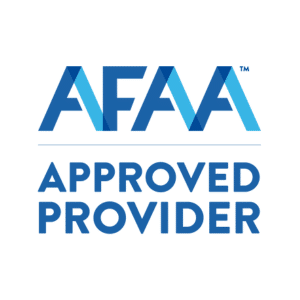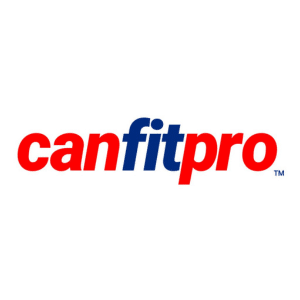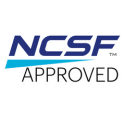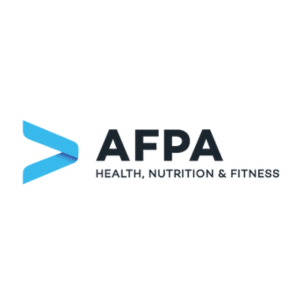Your Path to Pre and PostNatal Certification: Expert Training for Fitness Professionals

Exercising during and after pregnancy requires specialized knowledge to prepare the body for the unique, high-stress demands of pregnancy and birth and facilitate a full and effective recovery.
That’s why AFPA has partnered with ProNatal Fitness® to bring you an evidence-based curriculum that will help you easily design safe and effective training programs for pregnant and postpartum clients of all stages and fitness levels.
The AFPA Pre & Postnatal Fitness Specialist Certification course provides personal trainers and fitness professionals with high-quality education and advanced skills so that you can help your clients successfully manage the stresses of pregnancy and birth, and emerge even stronger.

This Pre & Postnatal Fitness Certification Course is For…

Personal Trainers & Fitness Professionals
Increase your marketability with this high-demand specialization. Train clients 1-on-1, develop online programs, or teach pre & postnatal group fitness classes.

Perinatal Professionals
Improve the quality of client/patient care you provide as a doula, midwife, physical therapist, nurse, or obstetrician.

Health Coaches
Support your pregnant and postpartum clients in safely navigating and reaching their health and wellness goals.
Pre & Postnatal Fitness Specialist Certification Course Materials
This self-study online certification course will provide you with everything you need to confidently train and support clients throughout pregnancy and postpartum. Whether you’re already a personal trainer for pregnant women, an aspiring prenatal personal trainer, or looking to earn a postpartum certification to support your own journey, these learning materials will prepare you to empower mothers.
- 17 Self-Paced Learning Modules
- 8+ Hours of Video & Additional Interactive Content
- Downloadable PDFs for Each Module
- Self-Check Quizzes
- Case Study Practice
- Video Library with 130+ Exercises
- Programming Templates and Sample Workouts
- Fillable Intake and Movement Assessment Forms
- Resources for Your Clients
- Pre & Postnatal Fitness Specialist Certificate
- CECs: NASM 1.9, ACE 3.6, AFAA 15, CANFITPRO 4, ISSA 20, NSCA 2.0, AFPA 16
Watch a Sample Video Lesson
Course Highlights

Comprehensive prenatal and postpartum fitness education featuring the most up-to-date, evidence-based curriculum

Self-paced online course allows you to learn and graduate on your own time, at a pace that fits your life and goals

Content that will help you guide your clients—physically and mentally—from the first trimester through postpartum recovery, and beyond

21 handouts, reference guides, client forms, and tools you can download and refer to forever
Course Curriculum: Pre & Postnatal Fitness Specialist Certification
This pre and postpartum certification is designed to equip trainers with the skills to safely and effectively train clients through every stage of pregnancy and postpartum recovery. Spanning 17 in-depth modules, the course takes approximately 30–35 hours to complete and covers key topics such as pregnancy-related physiological changes, postnatal fitness, performance-based training strategies, and postpartum program design. Each module features engaging video lessons, interactive written content, downloadable PDFs, and self-check assessments to reinforce learning.
Module 1: Evolution of Childbirth Answer
Explore the historical evolution of childbirth to gain insights into effective strategies for preparing and supporting clients through this most complex and taxing journey.
Module 2: Rationale for a Performance Training Approach Answer
Discover the benefits that research has uncovered about the effects of exercise during pregnancy (on parent and child). Then, understand why we believe that a Performance Training Approach is the most effective way to prepare clients for this journey.
Module 3: The Demands of Pregnancy (How the Body Changes) Answer
Understand the eight significant physical and physiological changes of pregnancy that have the greatest impact on physical activity.
Module 4: The Demands of Childbirth and Early Parenthood Answer
Examine the stresses placed on the body during childbirth and early parenthood that you’ll want to prepare your prenatal clients for.
Module 5: Prenatal Programming Framework (Overview and Stage 1) Answer
Now that you understand the demands placed on the body during pregnancy, childbirth, and early parenthood, learn how to prepare your clients for all of these using the ProNatal Fitness 3-Stage Prenatal Programming Framework. This module introduces you to the framework and covers Stage 1 (Foundation) in detail.
Module 6: Prenatal Programming Framework (Stages 2 and 3) Answer
Delve into the details of Stage 2 (Strength) and Stage 3 (Birth Prep). By the end of each module, you will have a good sense of the objectives you’ll need to accomplish with your prenatal clients and the order in which to do so. More detailed programming guidance comes in Module 10.
Module 7: Assessing the Pregnant Client Part 1: Overview & Key Questions Answer
A critical component of prenatal program design is understanding your client’s starting point. This module introduces you to the ProNatal Fitness 3-step assessment process and covers the key questions to ask your new prenatal clients.
Module 8: Assessing the Pregnant Client Part 2: Movement Assessment Answer
One component of the 3-step assessment process is the Movement Assessment. Discover a unique and powerful goalbased assessment strategy that will give you deeper insight into how your clients move outside the gym.
Module 9: Managing Pregnancy Pains & Injuries Answer
Before we get into the detailed programming guidance in Module 10, it’s important to understand the common pregnancy pains and injuries, as the movements you select will play a significant role in the degree to which your clients experience these. Learn eight of the most common ones (including Diastasis Recti, Pelvic Floor Dysfunction, SI Joint Pain, and more). Understand their causes and learn strategies to help mitigate or manage them.
Module 10: Prenatal Program Design Answer
Now you have all the pieces of information needed to develop your prenatal training programs. This module covers the details on how to design training programs for clients of all stages, starting points, and fitness levels—including how to structure your sessions, how to select movements, guidance on what moves to avoid or regress by trimester, and case study practice.
Module 11: Pregnancy Psychological Changes and Coaching Strategies Answer
In this final prenatal module, explore important psychological considerations when working with prenatal clients. Learn how to support your clients in the best way as they navigate this major life transition, and how to manage the difficult situation of a pregnancy loss.
Module 12: Postpartum Recovery: Physical Considerations Answer
In this first postpartum module, delve into the physical considerations of the postpartum body, covering aspects such as the implications of vaginal and Cesarean births, weight loss, and healing of skin and fascia. Learn strategies to share with your clients to support their recovery during the initial weeks before they resume exercise.
Module 13: Postpartum Recovery: Psychological Considerations Answer
While a new baby brings many wonderful changes, it also brings a fair share of challenges. Discover coaching strategies for some of the most common challenges postpartum clients face. This module also includes an overview of Perinatal Mood & Anxiety Disorders (PMADs), including how to spot and manage them.
Module 14: Postpartum Programming Framework: Overview & Stage 1 Answer
Similar to prenatal, in this module you will learn the ProNatal Fitness 3-Stage Postpartum Programming Framework, then dive into Stage 1 (Foundation). Since there are many similarities to prenatal, we’ll focus on the biggest difference in the Foundation Stage—the Core Recovery Protocol that you will take all postpartum clients through.
Module 15: Postpartum Programming Framework: Stages 2 and 3 Answer
Understand the objectives of Stage 2 (Strength) and Stage 3 (Performance)—learning strategies for gradually progressing core work and a step-by-step process for introducing impact and higher-intensity activities.
Module 16: Assessing the Postpartum Client Answer
The postpartum assessment process is nearly identical to prenatal, but adds in one additional assessment —the Diastasis Recti (DR) check. Learn how to check for DR in a manner that improves your testing accuracy and gives you a clearer understanding of your client’s core integrity.
Module 17: Postpartum Program Design Answer
Finally, just as in prenatal, learn how to design postpartum training programs for clients of all stages, fitness levels, and starting points. Since there are many similarities to prenatal, we will focus on the specific differences with postpartum, and conclude with case study practice
Accreditation & Continuing Education
The ProNatal Fitness education is trusted and recommended by some of the most recognizable health clubs and boutique fitness studios in the U.S., and approved by the nation’s largest certifying agencies.


1.9 CEUs

15 CEUs

3.6 CECs

4.0 CECs

20 CECs

2.0 CECs

7.0 CECs

16 CECs
Let Customers Speak for Us

FAQ
What are the enrollment requirements for the Pre & Postnatal Fitness Specialist Certification course? Answer
To enroll in the Certified Pre & Postnatal Fitness Specialist Certification course, you must:
- Be at least 18 years of age.
- Have a solid understanding of the English language.
How long will I have to complete this course? Answer
You will have six months from your date of enrollment to complete your self-study program and pass your final exam. If you require more time, you can request a six-month extension for a fee of $75.
PDFs of the full course content are available for you to download, so you have access to the course information for life.
How soon can I start this course? Answer
We have open enrollment, so you may enroll whenever you are ready. Shortly after completing your purchase, we will grant you access to the learning portal where you can begin your course.
What happens once I enroll in the course? Answer
Shortly after you place your order, you will receive access to our online learning platform. This user-friendly platform serves as your hub for accessing all course materials, lecture videos, downloadable resources, and assessments.
Are textbooks included in my enrollment fee? Answer
This course is 100% online with no textbooks required. For learners who prefer printed study materials, each module includes PDF content that you can download and print.
What additional materials will I need? Answer
Your enrollment fee includes all of your course materials, assessments, online access, student support, and online certification testing. There are no added fees.
Can I earn continuing education credits for completing this certification program? Answer
This course is approved for the following CECs: NASM 1.9, ACE 3.6, AFAA 15, CANFITPRO 4, ISSA 20, NSCA 2.0, AFPA 16
To qualify for CECs, you must complete the certification program.
To receive CECs for a certifying agency not listed here, the typical process is that you reach out to your certifying agency and ask them for a CEC petition form for you to complete. We are happy to work with you to provide the materials you need to petition for credit.
Can I take this course if I’m not a fitness professional? Answer
We recommend having a foundational fitness or exercise science background to get maximum value from this certification course.
Are there payment plans available? Answer
AFPA offers flexible, interest-free payment plans without credit checks or added fees.
What is the certification exam like? Answer
The final exam is open-book and administered online. You need a minimum final exam grade of 85% to pass.
A $75.00 retest fee will apply. After successful completion, you will earn the title of “Certified Pre & Postnatal Fitness Specialist” on your certificate.
How do I become a pre & postnatal fitness specialist? Answer
- Enroll in the Pre & Postnatal Fitness Specialist Certification course.
- Access your 100% online self-study course and complete all 17 modules of the comprehensive prenatal and postpartum curriculum.
- Pass your final exam with a score of 85% or higher.
- Receive your Pre & Postnatal Fitness Specialist Certification.
Can I speak with an Enrollment Specialist before signing up? Answer
To speak with an Enrollment Specialist, email us at info@afpafitness.com or call us at 800.494.7782.
Flexible Payment Plans with 0% Interest — No Credit Check Required!
With AFPA’s in-house payment plans, you can pay as you go with no interest and no credit check. Spread the cost of your certification over time with the flexibility to choose a plan that works best for your budget.





